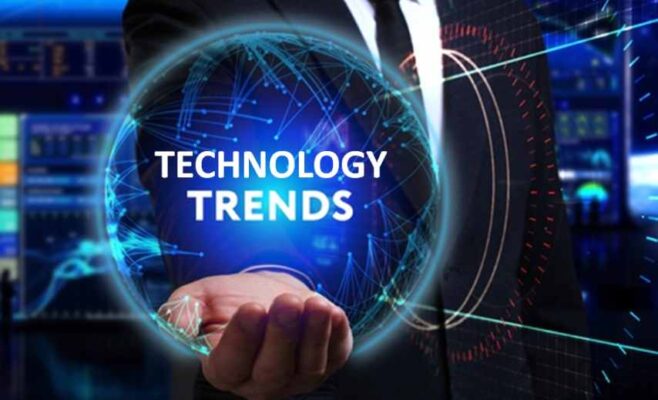
Technology breakthroughs and shifting consumer demands are driving ongoing change in the IT sector. Here we are a few of the most recent technological advances influencing the IT sector:
Artificial intelligence (AI) and machine learning (ML): These technologies are reshaping several industries by allowing robots to learn, analyze data, and make wise judgments. They can be used in fields including automation, data analysis, predictive analytics, and artificial intelligence.
IoT: IoT stands for the “Internet of Things,” a network of connected objects that can speak to one another and exchange information. Smart homes, industrial automation, healthcare, agriculture, and other fields can all benefit from its use. Large-scale data collecting for analysis and optimization is made possible by IoT.
Edge Computing: Edge computing moves data storage and processing capability closer to the point of data production. By processing and analyzing data directly at the network’s edge, it cuts down on latency, makes better use of bandwidth, and improves the ability to make decisions in real-time.
Cloud Computing: Cloud computing, which provides on-demand access to computing resources and storage through the internet, is still a prevailing trend. Businesses can benefit from its scalability, affordability, and flexibility, and it has aided in the emergence of several cloud-based services, including Software-as-a-Service (SaaS), Platform-as-a-Service (PaaS), and Infrastructure-as-a-Service (IaaS).
Cybersecurity: As technology develops, it is more important than ever to take strong cybersecurity precautions. IT specialists must use cutting-edge security techniques and techniques to safeguard sensitive data and systems due to the ongoing evolution of cyber threats.
Blockchain: Blockchain technology enables safe, decentralized, and open transactions. It has become popular in areas other than cryptocurrencies, like supply chain management, healthcare, banking, and identity verification.
Augmented reality (AR) and virtual reality (VR): AR and VR technologies are changing fields like games, education, healthcare, and retail. They offer interactive experiences, training simulations, and visualization tools to improve user interaction and engagement.
Robotic process automation (RPA): It is the use of software robots to automate routine, rule-based processes. Employees are free to focus on higher-value tasks thanks to increased efficiency, decreased errors, and reduced errors. Several industries, including finance, healthcare, and customer service, are using RPA.
Quantum Computing: Quantum computing can change the way computers work by using quantum mechanics to solve complex problems at a scale that has never been seen before. Even while it’s very early on, it shows promise for fields like cryptography, optimization, and scientific research.
These are only a few instances of the most recent technological advances in the IT sector. It’s vital to remember that Technology Trends are constantly changing, and being current with the most recent advancements is crucial for organizations and individuals to remain competitive and utilize technology to its fullest extent.
#artificialintelligence#IoT#Edge Computing#Cloud Computing#Cybersecurity#Blockchain#AR&VR#Quantum Computing#RPA